Best Guitar Cables – Buyer’s Guide By Zager Guitars
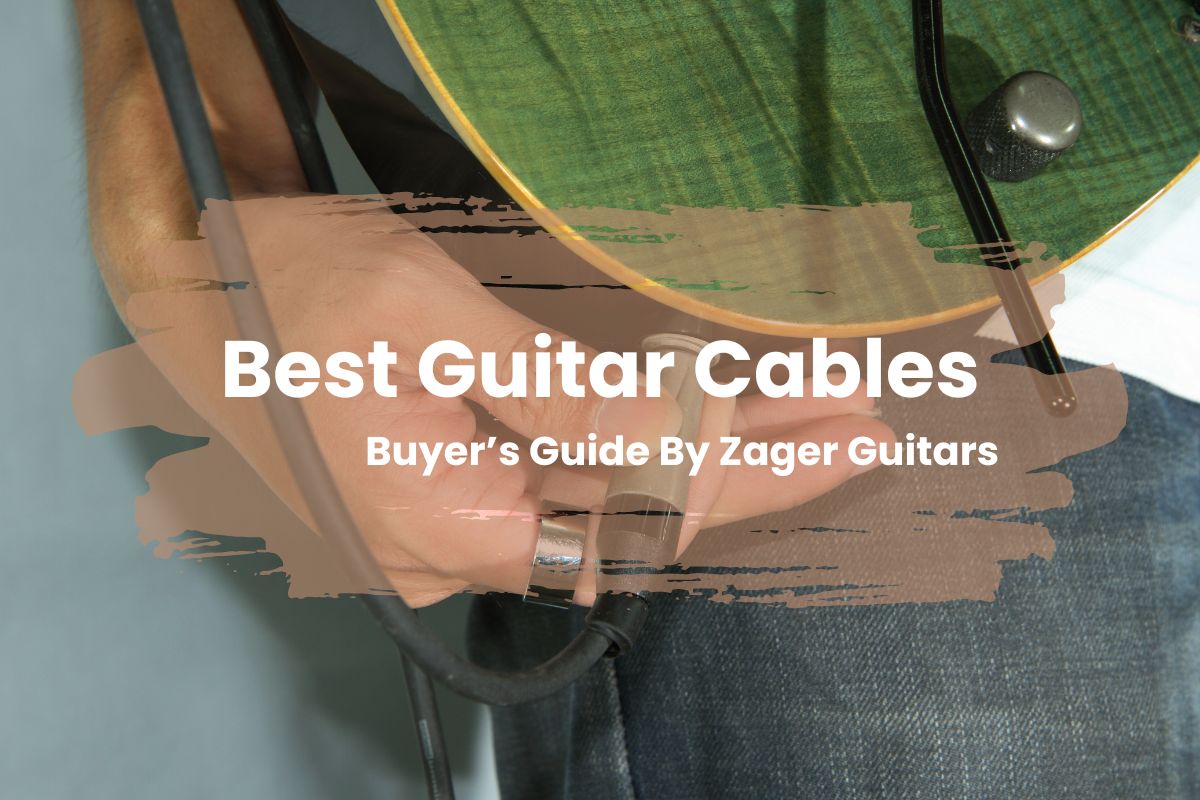
Many great guitar cables are on the market; the best one for you depends on your civic requirements and preferences. Dont However, there are a few factors that you should consider when choosing a guitar cable.
Imagine you’ve spent a few hours practicing your guitar skills and perfecting your technique, yet you’re not getting the tone you want. That’s where a good guitar cable comes in. A good guitar cable can help you achieve a more precise and dynamic sound to set your own guitar tone apart.
Zager Amplifier Cable
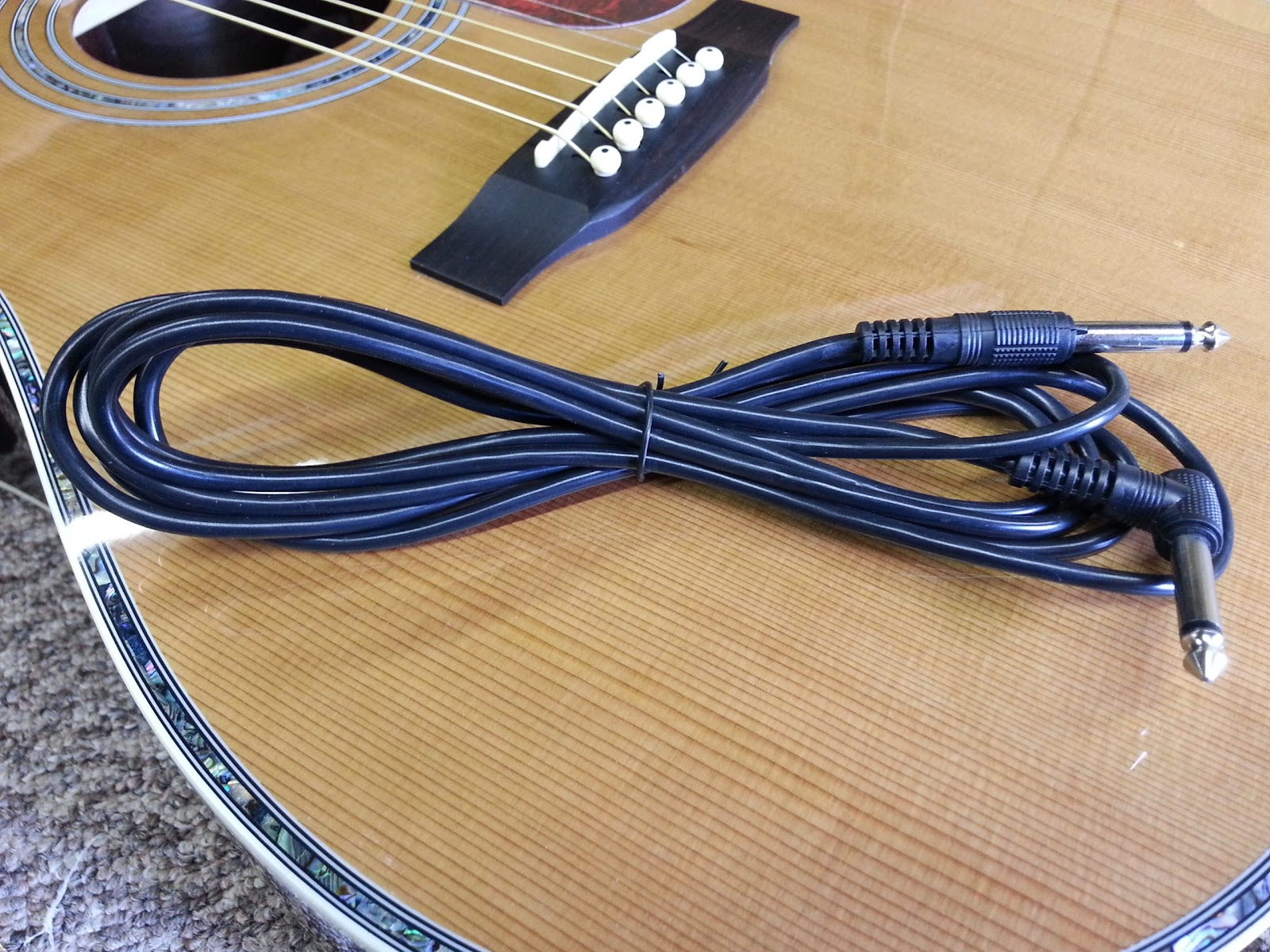
Zager’s amplifier cables are typically made using high-quality materials, such as oxygen-free copper wire, which can help to minimize interference and signal loss. Additionally, these premium cables often feature gold-plated connectors, which can improve the conductivity and durability of the cable.
Zager’s offerings may be worth considering if you’re in the market for a new instrument amplifier cable. However, many other brands and models of instrument cables are available, so it’s always a good idea to research and read reviews before making a purchase.
Price?
Mogami Gold Series Guitar Cable

The Mogami Gold Series guitar cable is designed to deliver perfect sound quality and durability. It is specifically engineered to provide a clean, transparent signal with low noise and interference.
The Mogami Gold Series features high-quality construction using patented Neglex oxygen-free copper cables, which amplify clarity and detail in sound quality. It also features high-density spiral shielding to reduce interference and noise. The Mogami Gold Series is a top-of-the-line instrument cable for many musicians and audio professionals.
Price $79.95
D’Addario Planet Waves American Stage Guitar Cable

cc D’Addario
The D’Addario America Stage Guitar Cable is an excellent option for a beginner. With patented Geo Tip technology, this high-quality cable ensures a secure and reliable connection between the line and the guitar output jack, ensuring maximum signal transfer and eliminating potential signal loss.
It delivers accurate and precise tones that will bring out the best of your guitar playing. It also features a braided shield that aids noise rejection so you can play without any electrical issues. If you’re genuine with your guitar playing, go with the D’Addario America Stage Guitar Cable!
Hosa GTR-210 Straight To Straight Guitar Cable
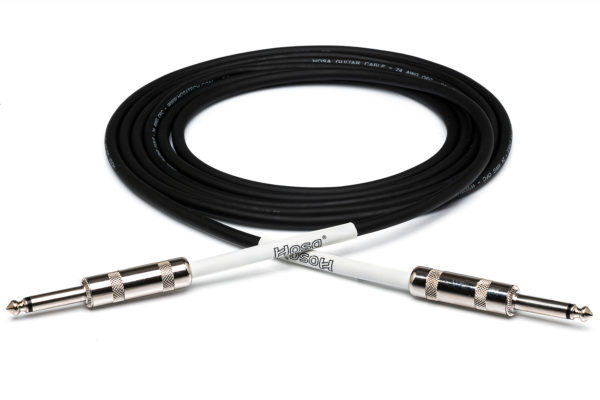
cc Hosa
Hosa Tech Guitar Cables are made to last many years with consistent performance. This product is of extraordinary value with top-notch manufacturing practices and high-quality components. It features Oxygen-Free Copper (OFC) conductor for enhanced signal clarity and a high-density OFC braided shield for EMI and RFI rejection.
Vox Vintage Coiled Guitar Cable

The Vox Vintage Coiled Guitar Cable is a classic and iconic guitar cable used by many guitarists over the years. Its unique design adds a vintage look to your setup and allows you to move around.
It is made of high-quality material, ensuring a durable and reliable cable for excellent signal transfer. The line is also shielded to prevent unwanted noise and interference, ensuring that your sound remains pure and without distortion.
The Vox Vintage Coiled Guitar Cable features a high-impedance, oxygen-free copper conductor that delivers a clear, transparent sound without loss of tone or volume. The cable’s unique design also ensures that it won’t tangle or knot, making it easy to pack up and transport to gigs. With its iconic look and exceptional performance, this cable will become a favorite among guitarists of all styles and skill levels.
Price $36.55
George L’s Guitar Cable
cc George L’s
The George L’s Guitar cable is a top-of-the-line cable that delivers the highest sound quality at an affordable price. With its innovative design and superior materials, this cable is a favorite among professional guitarists and musicians worldwide.
The unique design of George L’s Guitar Cable features solderless connectors that allow you to easily customize the length of the cable to suit your needs. This means you can create custom lengths for different situations, such as studio recordings or live performances, and ensure you have the perfect cable for every situation.
George L’s Guitar Cable is also incredibly durable and built to last, with a flexible design that allows for easy coiling and storage. The cable is shielded to prevent interference and noise, ensuring that your signal remains pure and free of unwanted distortion.
Price $93.60
Fender Professional Series Guitar Cable

cc Fender
The Fender Professional Series Guitar Cable will take your playing to the next level. The cable is highly reliable. It features a braided shield that provides excellent noise rejection and a custom-molded end that ensures the security and reliability of your guitar to the amplifier. But that’s not all. This incredibly flexible cable has a durable yet pliable construction allowing easy coiling and storage.
Price $39.99
Boss Instrument Cable

cc Boss
The Boss Instrument Cable is a premium-quality cable that delivers superior sound quality. Featuring heavy-duty outer jackets that are both durable and flexible, the Boss Instrument Cable is built to last. The cable’s oxygen-free copper conductors ensure maximum signal transfer, delivering a clear and vibrant tone that faithfully reproduces your instrument’s sound.
With its superior sound quality and rugged construction, this cable will surely become essential to your gear setup. So, don’t leave out on this amazing piece of equipment.
Price $29.99
Ernie Ball Coiled Guitar Cable

cc Ernie Ball
The Ernie Ball Coiled Guitar Cable is a premium-quality cable designed for superior performance and reliability. Featuring a flexible spiral design and braided shielding, it delivers a clear and pure sound that reproduces your instrument’s tone faithfully.
The cable’s durable construction can withstand touring and everyday use, making it a must-have for any serious guitarist. Upgrade your gear with the Ernie Ball Coiled Guitar Cable today and experience the difference in your playing
Price $49.99
Monster Prolink Rock
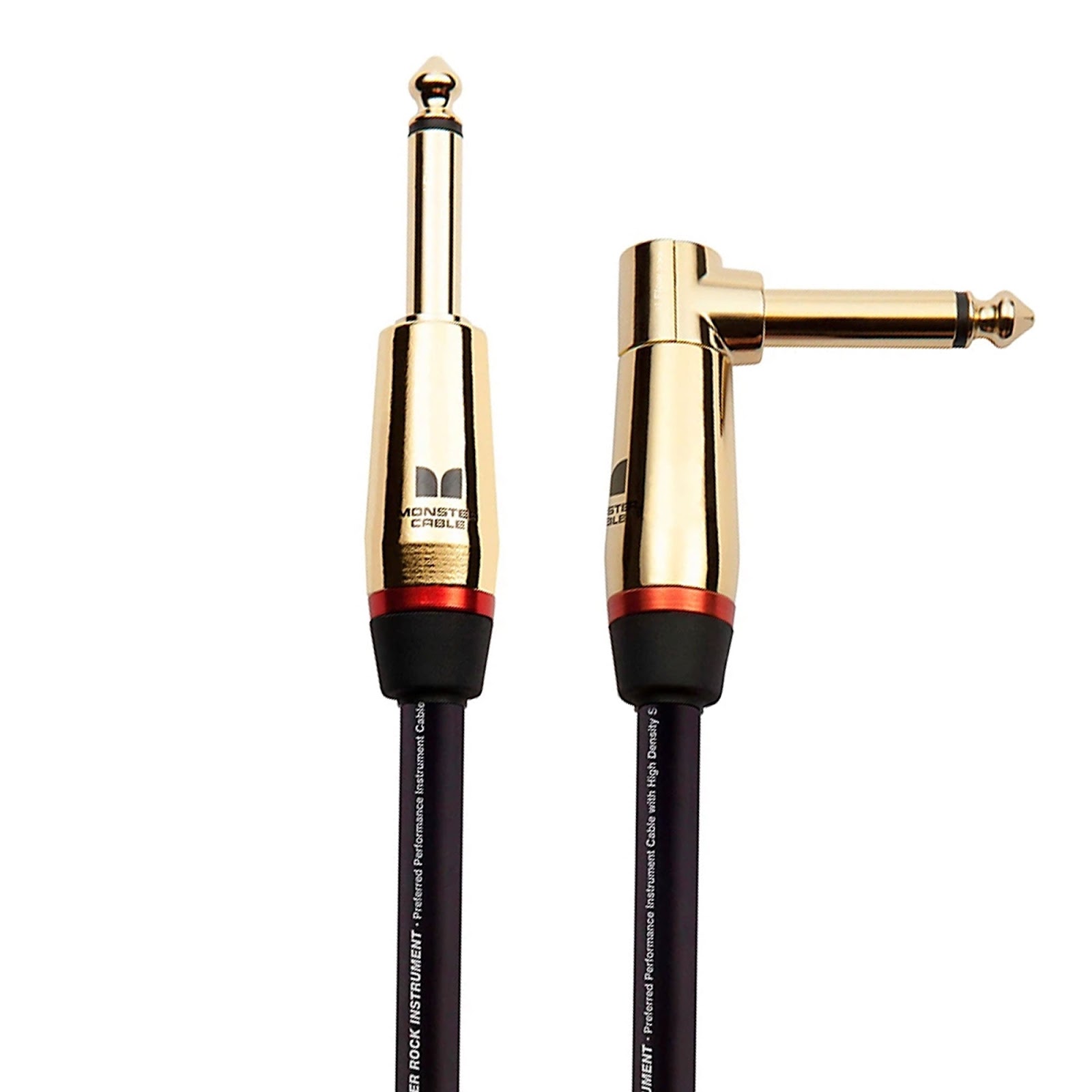
cc Monster
The Monster Prolink Rock guitar cable features advanced technologies for optimal sound quality and durability, making it a top choice for professional musicians. Its patented multiple-gauge wire networks and heavy-duty shielding deliver a natural sound, while its rugged construction ensures longevity. This cable is the perfect investment for severe guitarists who demand the best.
Price $64.99
GLS Audio 20-Foot Curly Guitar Instrument Cable
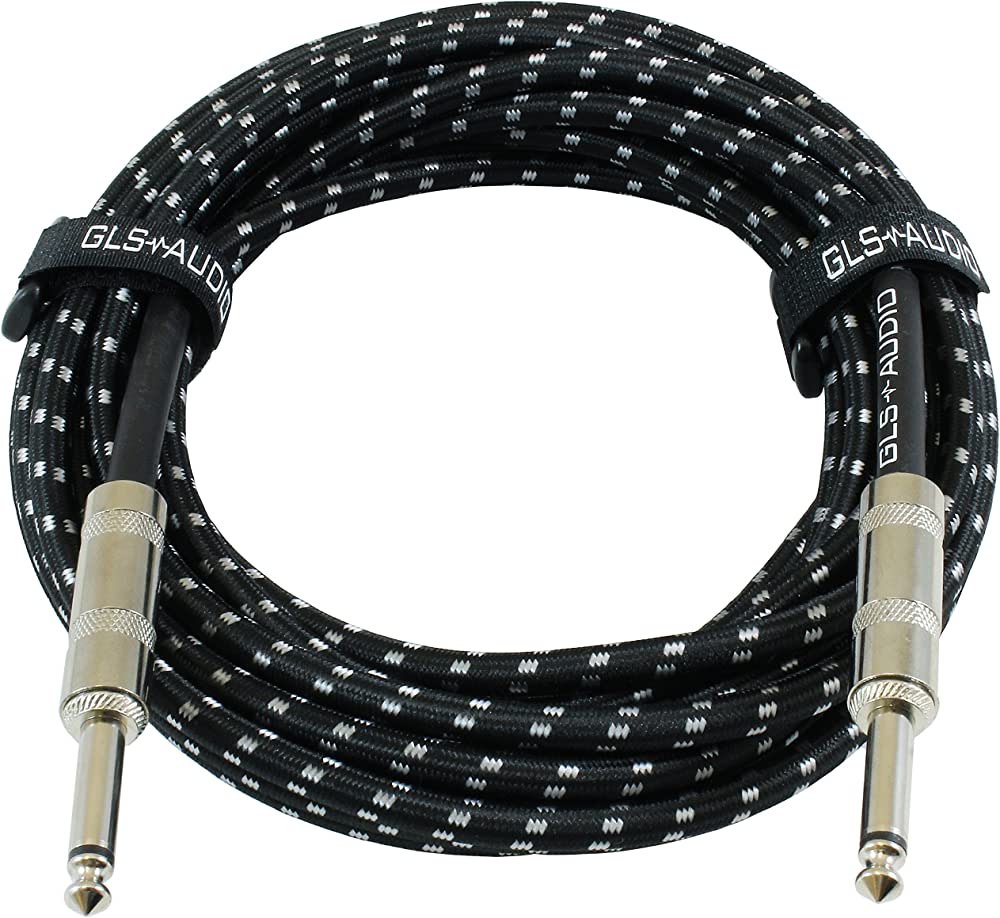
cc GLS Audio
The GLS Audio 20-Foot Curly Guitar Instrument Cable is a top-quality cable designed for guitarists needing reliable and flexible stage and studio cable. Its unique curly design allows for easy stretching and flexibility, while its high-quality materials provide superior sound quality and durability.’
The GLS Audio 20-Foot Curly Guitar Instrument Cable is also built to last, with a durable and robust construction that can withstand the rigors of touring and everyday use. Its custom-molded connectors ensure a secure and reliable connection to your guitar and amplifier, giving you the peace of mind to focus on your playing. With its superior sound quality, flexible curly design, and rugged construction, the GLS Audio 20-Foot Curly Guitar Instrument Cable is a must-have accessory for any serious guitarist.
Price $19.05
MXR Pro Series Guitar Cable

cc MXR
Th MXR Pro Series guitare MXR Pro Series guitar cable is a high-quality instrument cable for guitars and other electric instruments. The cable is made from oxygen-free copper (OFC) and features a braided shield for noise reduction and durability.
The cable is available in various lengths and is designed to be tangle-free, making it easy to use and store. The connectors on the cable are gold-plated for optimal signal transfer and corrosion resistance.
Overall, the MXR Pro Series guitar cable is a great choice for musicians who want a reliable, high-quality cable that delivers clear and consistent sound.
Price $29.99
Does a good Guitar Cable make a difference in sound?
A suitable guitar cable can make a significant difference in the sound quality of your guitar. The primary function of a guitar cable is to transmit audio signals to the amplifier while maintaining true equality.
A good quality guitar cable can help maintain the clarity and fidelity of your guitar’s tone. In contrast, a low-quality cable can introduce noise, interference, and signal loss, degrading sound quality.
Factors such as the quality of the cable’s connectors, the type of shielding used, and the cable’s capacitance and impedance can all affect the overall sound quality of the guitar signal. A good guitar cable with high-quality components and construction can provide a cleaner and more transparent signal, which can help improve your guitar’s sound.
How To Choose a Guitar Cable?
Choosing the right guitar cable can make a significant difference in the sound and performance of your guitar. Here are some factors to consider when choosing a guitar cable:
Length:
Choose a cable that is long enough to allow you to move around comfortably on stage or in the studio. A good rule of thumb is to choose a cable at least 10-20 feet long.
Type:
Different guitar cable types are available in the market, including coiled, straight, and angled. Coiled cables are ideal for those guitar players who move around a lot, while straight and angled cables are better for stationary playing.
Material
Look for a cable made from high-quality materials, such as oxygen-free copper, which can help improve sound quality and reduce interference.
Shielding
Choose a cable with good shielding to reduce noise and interference. Braided shielding is a good option as it is more durable and can provide better protection.
Connectors
Look for durable and reliable connectors, and ensure they are compatible with your guitar and amplifier.
Budget
Set a budget and look for a cable that meets your needs without breaking the bank.
By considering these factors, you can choose a guitar cable that is reliable, durable and provides high-quality sound.
What Is The Difference Between Coiled Cables And Straight Guitar Cables?
Coiled Cables
Are you ready to rock? Then you’ll need a trusty coiled guitar cable to connect your axe to your amplifier and unleash your inner Jimi Hendrix or Eddie Van Halen!
Coiled guitar cables are a staple of the rock and roll world, known for their durability, flexibility, and relaxed look. They provide some extra length for guitarists who like to roam on stage and have that classic spiral shape that looks great with any vintage or modern guitar.
But don’t be fooled- coiled guitar cables are also practical and reliable. They’re less likely to tangle or knot than straight cables, making them perfect for musicians who need to pack up their gear quickly after a show. And because they can stretch out to their full length, you can move further away from your amplifier without losing signal quality.
Choosing a high-quality cable made with suitable materials and designed to withstand the wear and tear of regular use is essential. And while coiled cables can be more prone to noise and interference than straight cables, a good quality coiled cable can provide a clear and reliable signal for your guitar or other instrument.
What Is The Difference Between Balanced And Unbalanced Guitar Cables?
Unbalanced Guitar Cable
Unbalanced cables are the tried-and-true choice for many guitarists, thanks to their affordability and simplicity. Unbalanced cables do the job without breaking the bank with just two hot and ground wires.
But beware: their simplicity can also make them more susceptible to interference and noise, which can seriously cramp your style when shredding at high volumes.
Balanced Guitar Cables
Balanced guitar cables are a more complex, expensive, sophisticated, and reliable alternative. With three wires – a hot wire, a cold wire, and a ground wire – balanced premium guitar cables cancel out electromagnetic interference (EMI) by transmitting opposite versions of the audio signal. This results in a cleaner and more precise sound, even at high volumes.
So which cable should you choose? It depends on your needs and preferences as a musician. An unbalanced cable may be the way to go if you’re starting out or on a budget. But a balanced cable could be worth the investment if you’re serious about your sound and want to ensure professional performance.
Regardless of which cable you choose, ensuring it’s made with quality materials and is designed to withstand regular use is vital. After all, a faulty cable can mean the difference between a flawless performance and a major equipment malfunction – and nobody wants that!
Best Guitar Cable Length
The best guitar cable length will depend on your specific needs and preferences. Generally, guitar cables come in sizes from 6 feet (1.8 meters) to 25 feet (7.6 meters) or more.
A shorter cable length, such as 6 to 10 feet, can be convenient for home use or for playing on small stages, as it reduces the amount of cable clutter and makes it easier to move around without getting tangled up. However, a longer cable may be necessary if you’re playing on a larger stage or must move around during your performance.
It’s important to remember that longer cable lengths can result in signal loss or degradation, mainly if the cable is of poor quality. This is due to the cable’s capacitance, which can affect the high-frequency response of your guitar signal. Therefore, if you need a longer cable, it’s essential to choose a high-quality cable with low capacitance and good shielding to maintain optimal sound quality.
What Is Cable Capacitance?
Your guitar cables are essential to your sound, and taking proper care of them is crucial to ensure they deliver the best possible performance. Here are some tips to help you keep your cables in tip-top shape and sounding great:
Avoid Excessive Bending Or Twisting Of The Cable
Think of it like a garden hose – bending it too much will restrict the water flow. The same applies to your cable – too much bending or twisting can damage the wires inside and cause a loss of sound quality. So, handle your cable with care and avoid any unnecessary strain.
Store Your Cables Neatly
Store your cables neatly by coiling them properly. You don’t want tangled wires on the floor when you’re trying to set up for a gig. Instead, please take a few moments to coil your cables neatly and use cable ties or Velcro straps to keep them organized. Avoid tightly wrapping them around your arm or hand, as this can cause kinks or twists that affect the cable’s performance.
Keep Your Cables Clean And Free
Keep your cables clean and free from dust and debris. This may sound like a no-brainer, but it’s easy to overlook. Wipe them down with a damp cloth after use and store them in a dry place. This will prevent dirt and grime from building up and causing unwanted noise or interference in your signal.
When disconnecting your cable from your guitar or amplifier, avoid pulling or tugging on the cable tie connection it. Instead, grasp the connector firmly and pull it straight out. This will prevent any damage to the cable and ensure a reliable connection every time.
Check Cable Connectors
Don’t forget to take care of your cables’ connectors. Check them periodically for any signs of wear or damage, and replace them if necessary. This will ensure a secure and reliable connection and prevent unwanted noise or interference.
Following these simple tips, you can keep your guitar cables in top condition and ensure they provide the best possible sound quality for years. So, take care of your cables, and they’ll take care of your excellent sound quality too!
Can Guitar Cables Cause Buzz?
Yes, a guitar cable can cause buzz or noise in your signal. Buzz is a common issue for many guitarists and can be caused by various factors, including interference from other electronic devices, poor grounding, and cable defects.
A guitar cable with poor shielding can also be a noise source, as it can allow external electromagnetic interference to enter the cable and interfere with the guitar signal. This can result in a buzz or hum heard through the amplifier or audio interface. A damaged or worn guitar cable can cause noise as it may not be able to transmit the signal cleanly and effectively.
To prevent buzz and noise in your guitar signal, it’s essential to use a high-quality guitar cable with good shielding and ensure that all your equipment is properly grounded. It’s also a good idea to regularly inspect your cables for damage or wear and to replace them as needed to maintain optimal sound quality.
About Us
Zager Guitars is a family-owned third-generation guitar builder building guitars in Lincoln, Nebraska, since 1902. Zager is rated in the top 5% of all guitar brands and has been featured in Time Magazine, Newsweek, The Wall Street Journal, Forbes, Rolling Stone, The New Yorker, ABC, NBC, CBS, CNN, FOX, and a multitude of national and international news media. Zager also donates over $1M in guitars to children and public schools nationally, more than any other acoustic guitar maker.
To achieve the levels of playability that Zager guitars deliver, it requires a “precision build.” This means computer-controlled milling, laser-guided cutting, and robotic sanding and finish application. Bob Taylor of Taylor Guitars uses the automated building on their most expensive models because a computer build is always more precise than a hand build.
Zager does one thing differently, though. Where Taylor keeps their machines in Mexico and the US, we keep ours in Indonesia, where wood and materials for guitar building are 50% lower in price. This way, you receive a guitar with the most cutting-edge technology available today for $3000 instead of $6000-$10,000.
FAQ’s
What Are Balanced Guitar Cables?
Balanced guitar cables are a more complex, expensive, sophisticated, and reliable alternative. With three wires – a hot wire, a cold wire, and a ground wire – balanced cables cancel out electromagnetic interference (EMI) by transmitting opposite versions of the audio signal. This results in a cleaner and more precise sound, even at high volumes.
Is It Important To Have Specific Brand Guitar Cables?
No, Having a specific brand’s guitar cables is not essential, but it’s always recommended to have good high-quality guitar cables.
How Long Does a Guitar Cable Last?
The lifespan of a guitar cable largely depends on how often it is used, how it is handled and stored, and the quality of the cable itself. A well-maintained, high-quality cable can last many years of regular use, while a low-quality cable may need to be replaced much more frequently.
